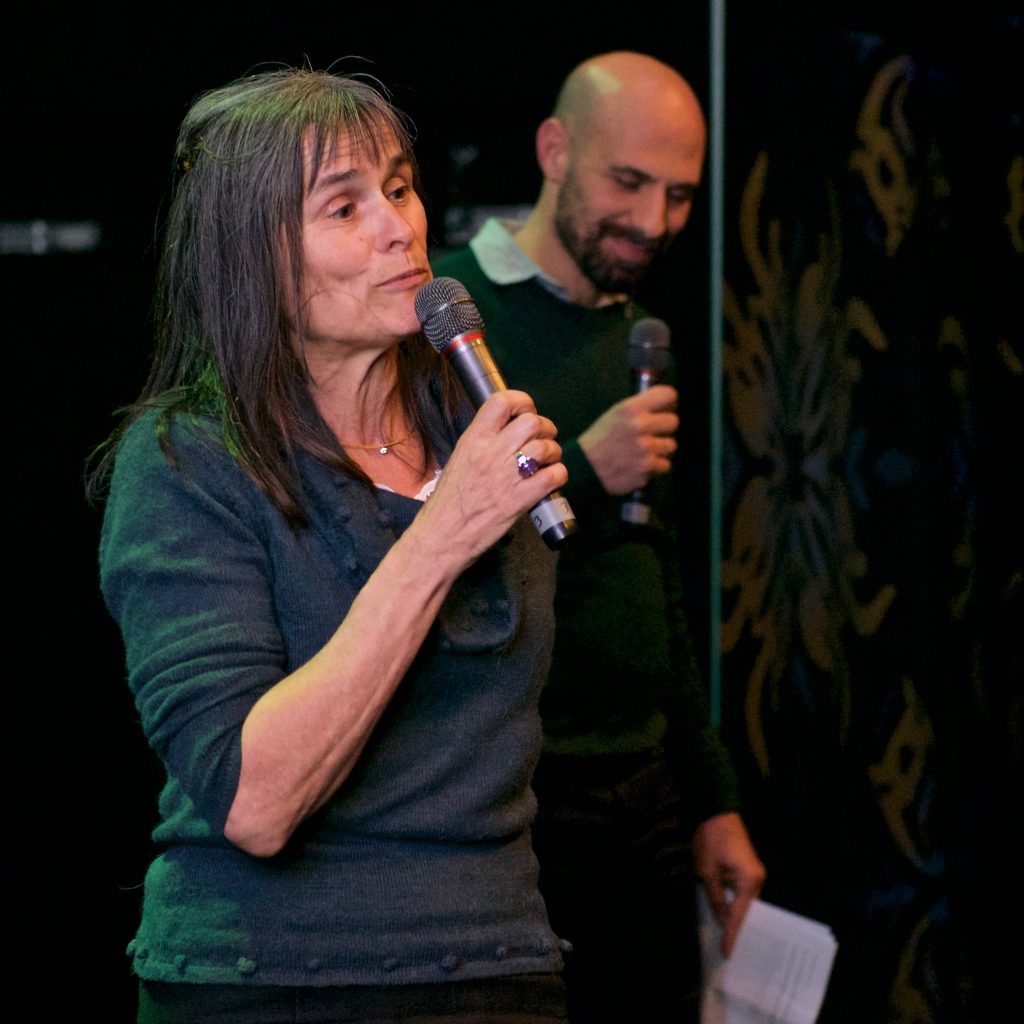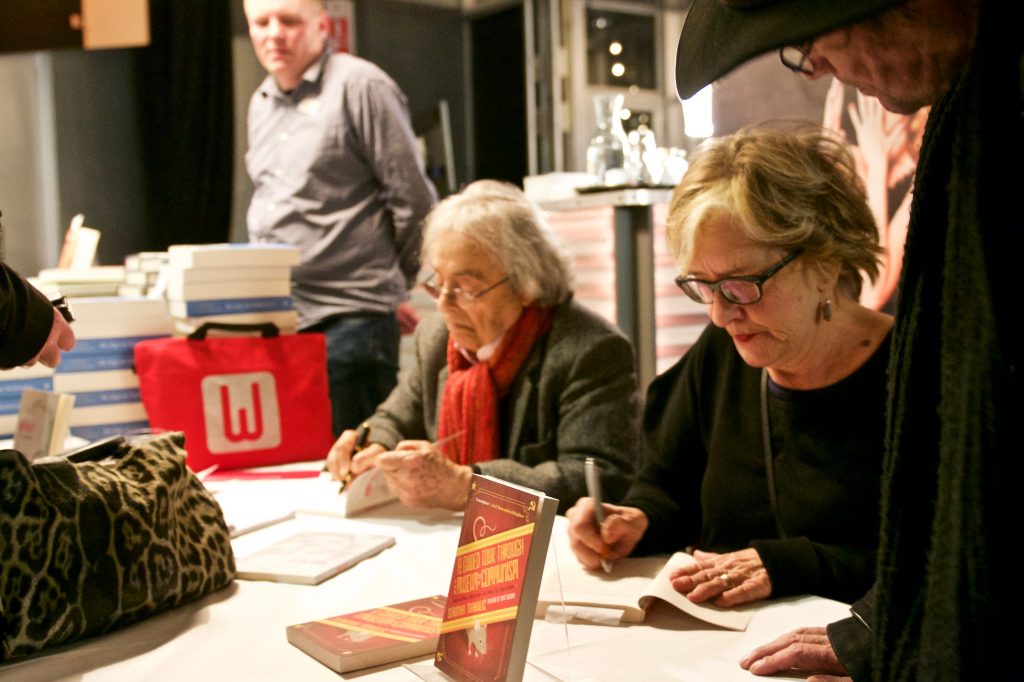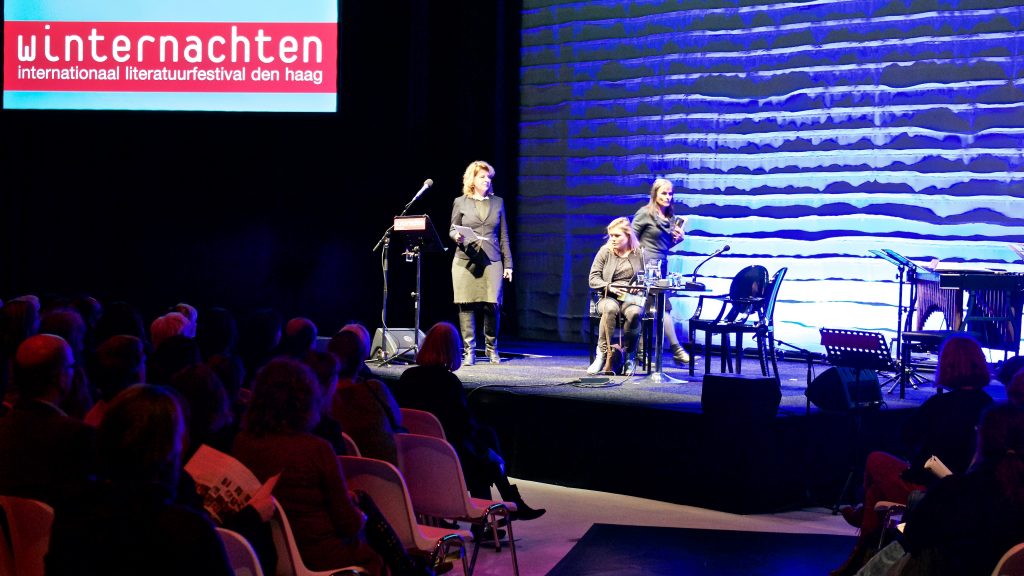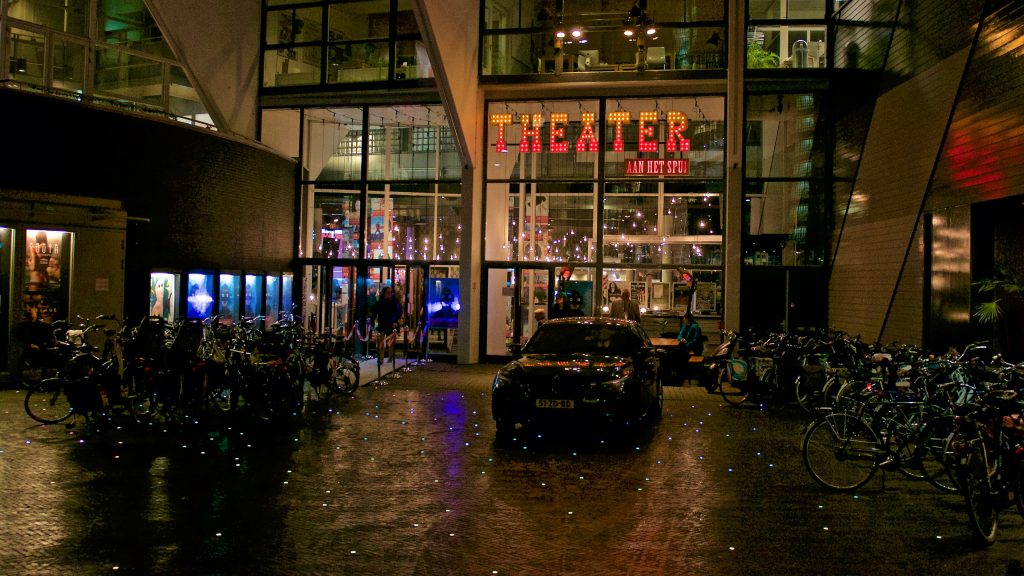Literatuur is geen middel om politieke veranderingen teweeg te brengen, maar om mensen te veranderen. Dat is precies wat hij met zijn boeken beoogt, zei de Egyptische schrijver Alaa al Aswani gisteren op Winternachten, waar zijn nieuwe roman De Automobielclub van Caïro werd gepresenteerd. Zo kwamen waarschijnlijk ook de bezoekers van het literaire festival aan het einde van de avond weer naar buiten: een heel klein beetje anders dan daarvoor.
Een avondje praten over het Kwaad bleek niet alleen interessant, maar ook amusant. Diverse auteurs konden niet komen omdat ze ziek waren, maar daar had het programma niet onder te lijden. In plaats van met Jamal Ouariachi ging de Belgische schrijfster Kristien Hemmerechts de polemiek aan met Abdelkader Benali, die zich goed van zijn taak kweet. Centrale vraag was: wie is nu eigenlijk de bron van alle kwaad, de man of de vrouw? Hemmerechts’ argumenten waren sterker, maar met zijn levendige en humoristische betoog wist Benali geregeld de lachers op zijn hand te krijgen – misschien dat daarom de strijd eindigde in een gelijkspel. Een luchtig begin van de avond.

Maar ook de andere, meer serieuze programmaonderdelen werden met een zekere lichtvoetigheid gebracht. Dat bleek opnieuw de kracht van dit festival: dat het ernstige onderwerpen durft te brengen, maar dat op zo’n manier doet dat het niet zwaar wordt. Daardoor komt het thema des te beter uit de verf.
Slavenka Drakulic en Frank Westerman, die beiden een boek over Srebrenica hebben geschreven, spraken over de oorlog in Joegoslavië. Een oorlog die niet is ontstaan tussen de verschillende volkeren, maar is bedacht en teweeggebracht door politici, die de volkeren tegen elkaar hebben opgezet. ‘Daar hebben veel journalisten, intellectuelen en ook schrijvers aan bijgedragen,’ aldus de Kroatische schrijfster. ‘Want velen van hen werden betaald door de overheid. Mensen moesten wel, om in hun inkomen te kunnen voorzien.’ Zelfs als onafhankelijk journalist was het moeilijk om toch niet, direct of indirect, onderdeel van het conflict te worden, zei ook Wetserman. ‘Naast journalist ben je ook gewoon mens, en ben je geneigd partij te kiezen voor de underdog. In een oorlog kun je onmogelijk onpartijdig blijven.’
Het gevaar is, aldus Drakulic, dat we geneigd zijn (oorlogs)misdadigers af te schilderen als monsters. ‘Dat doen we vanuit een verdedigingsmechanisme. Als je onderkent dat oorlogsmisdadigers menselijk zijn, moet je ook onder ogen zien dat je zelf misschien in een situatie terecht kunt komen waarin je óók zulke daden zou kunnen plegen. Die potentie hebben we allemaal, en dat is een zware last. Maar als je je daarvan bewust bent, kun je er misschien voor kiezen het juiste te doen.’

Dictators
Ook de Oekraïense schrijver Andrej Koerkov en zijn Egyptische collega Alaa al Aswani voerden een boeiend en levendig gesprek over opstand en dictatorschap. Toen de revolutie in Kiev uitbrak legde Koerkov zijn roman weg en schreef hij een non-fictieboek. Om heftige gebeurtenissen tot fictie te kunnen omvormen is voldoende psychologische afstand nodig, zei hij. ‘De pijn moet eerst een herinnering zijn geworden voordat je erover kunt schrijven. Anders reageer je alleen op je pijn, en niet zozeer op de onderliggende oorzaak en achtergrond ervan. Dan zou ik wraak nemen met woorden.’
Alaa al Aswani, een van de weinige schrijvers die het regime in Egypte openlijk bekritiseert, vindt dat schrijvers een belangrijke taak hebben en dat literatuur een grote maatschappelijke functie heeft. ‘Schrijven is het verdedigen van menselijke waarden. Literatuur is geen middel om politieke veranderingen teweeg te brengen, maar goede literatuur is wel in staat om mensen te veranderen en te veranderen hoe ze naar dingen kijken.’
En dat is precies waar het festival Winternachten om gaat.


